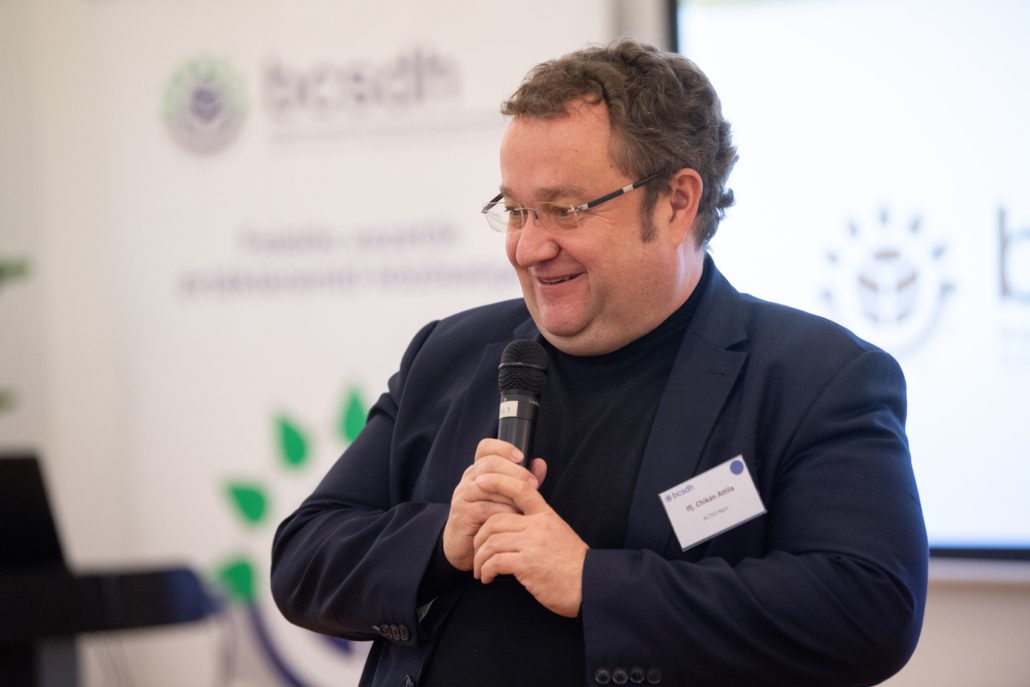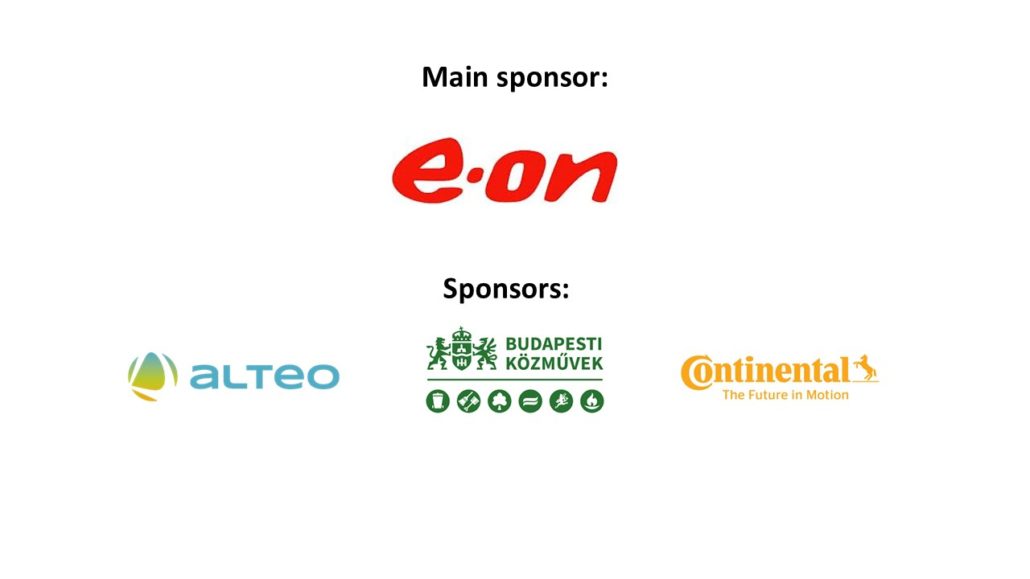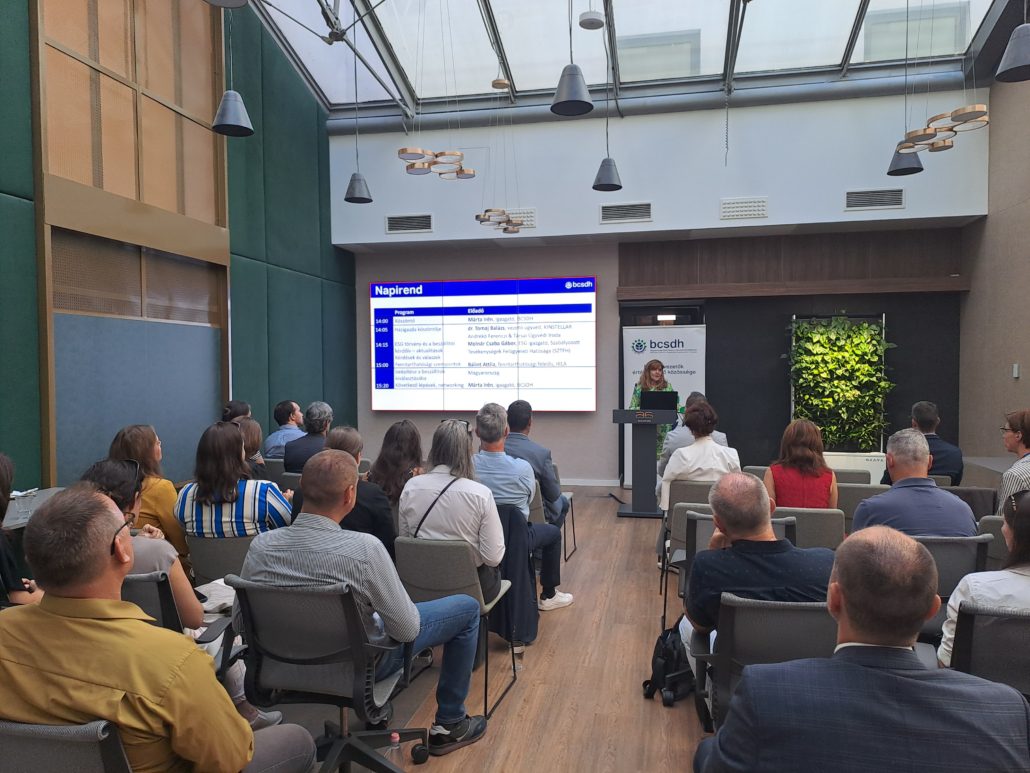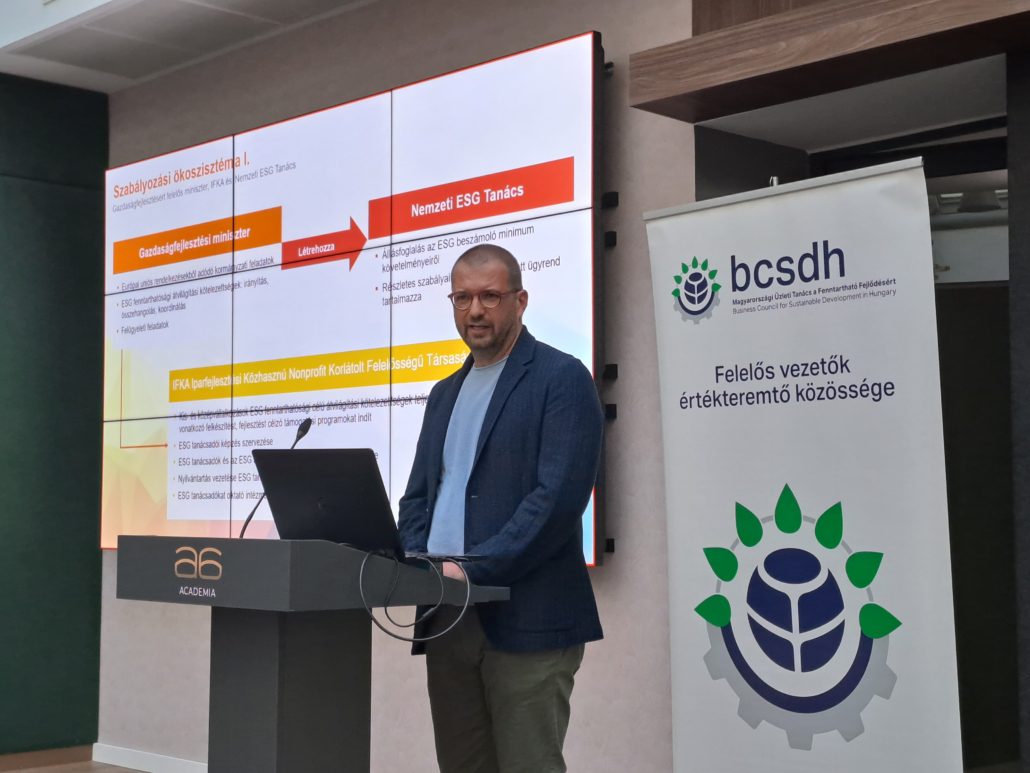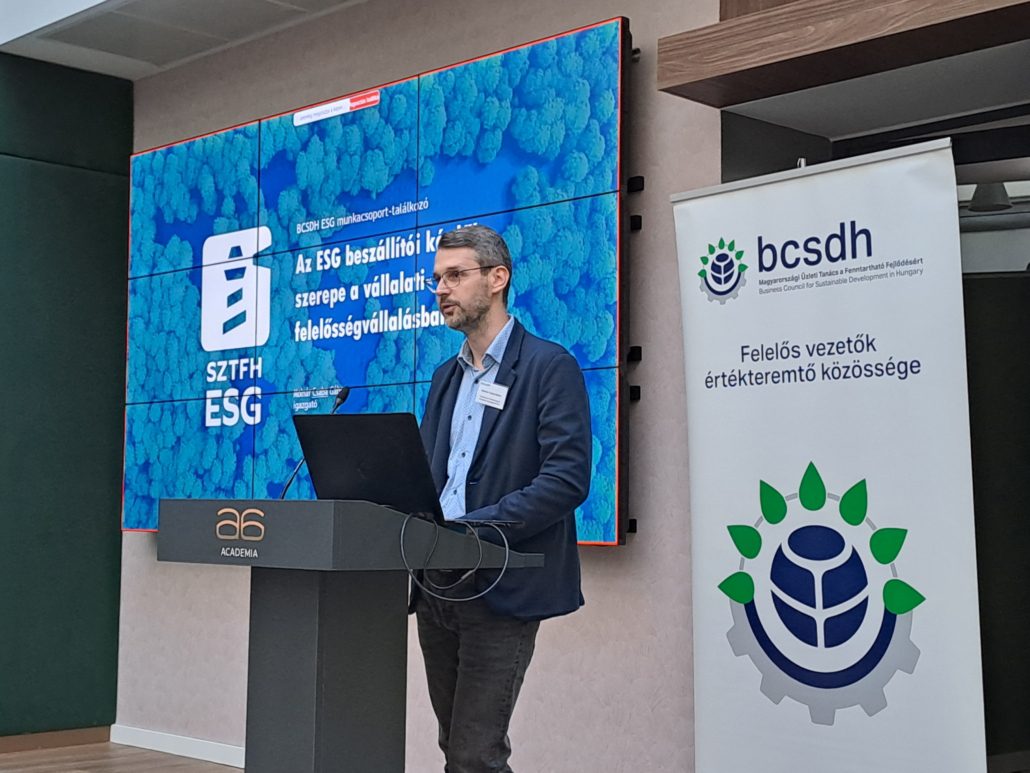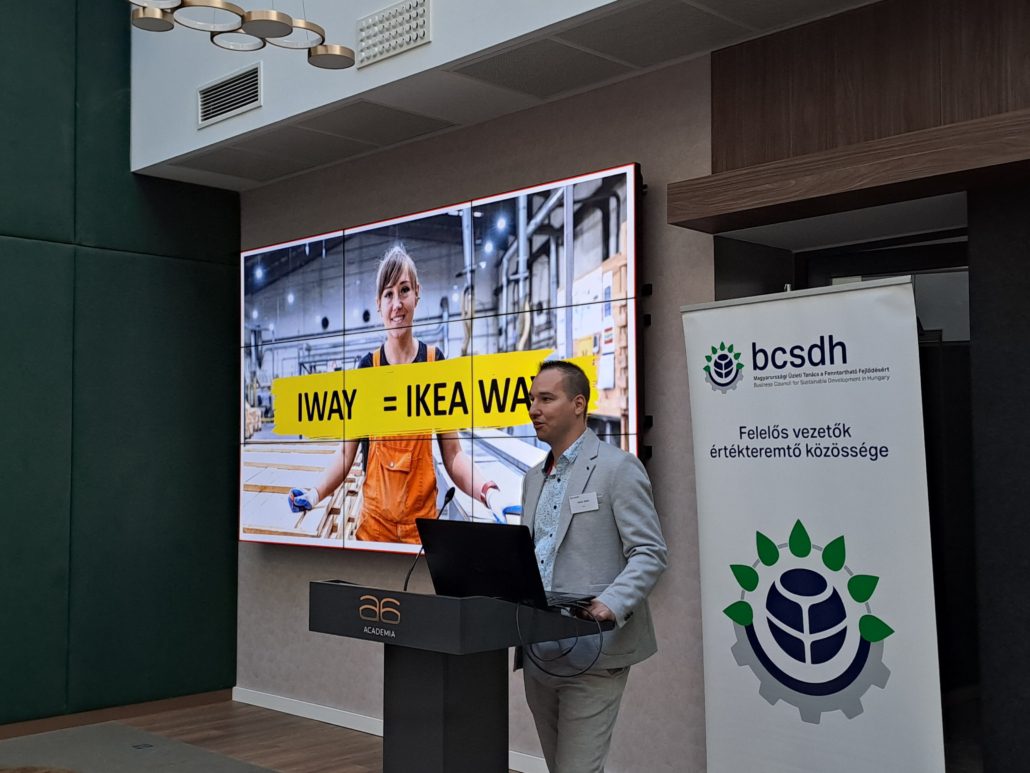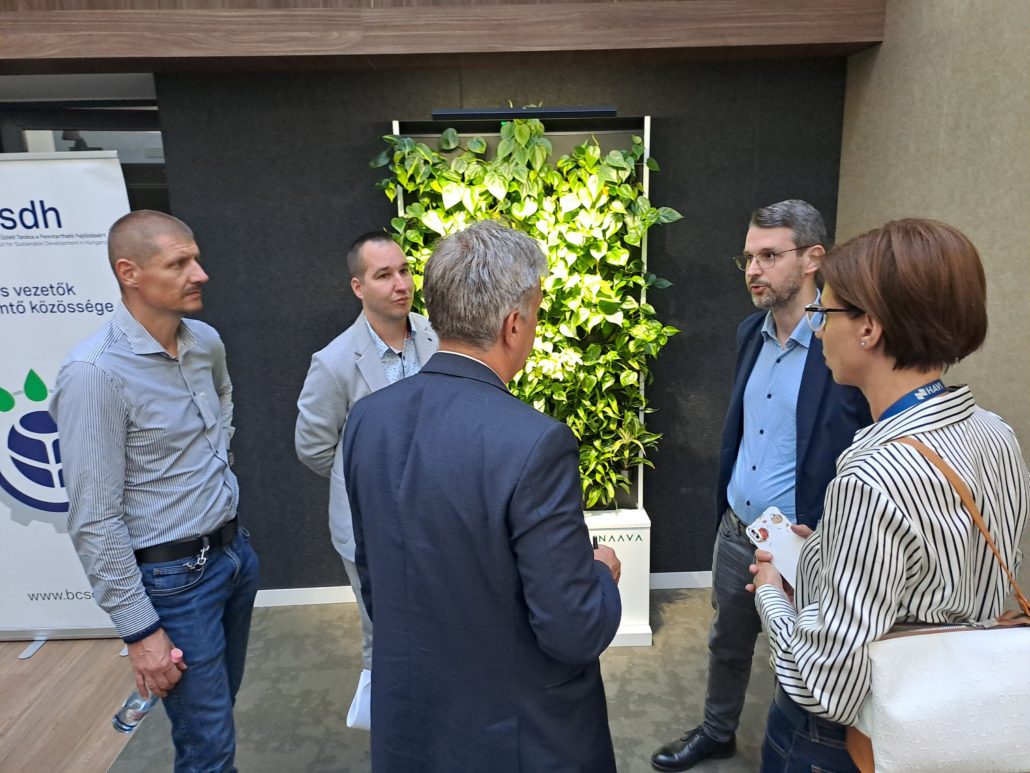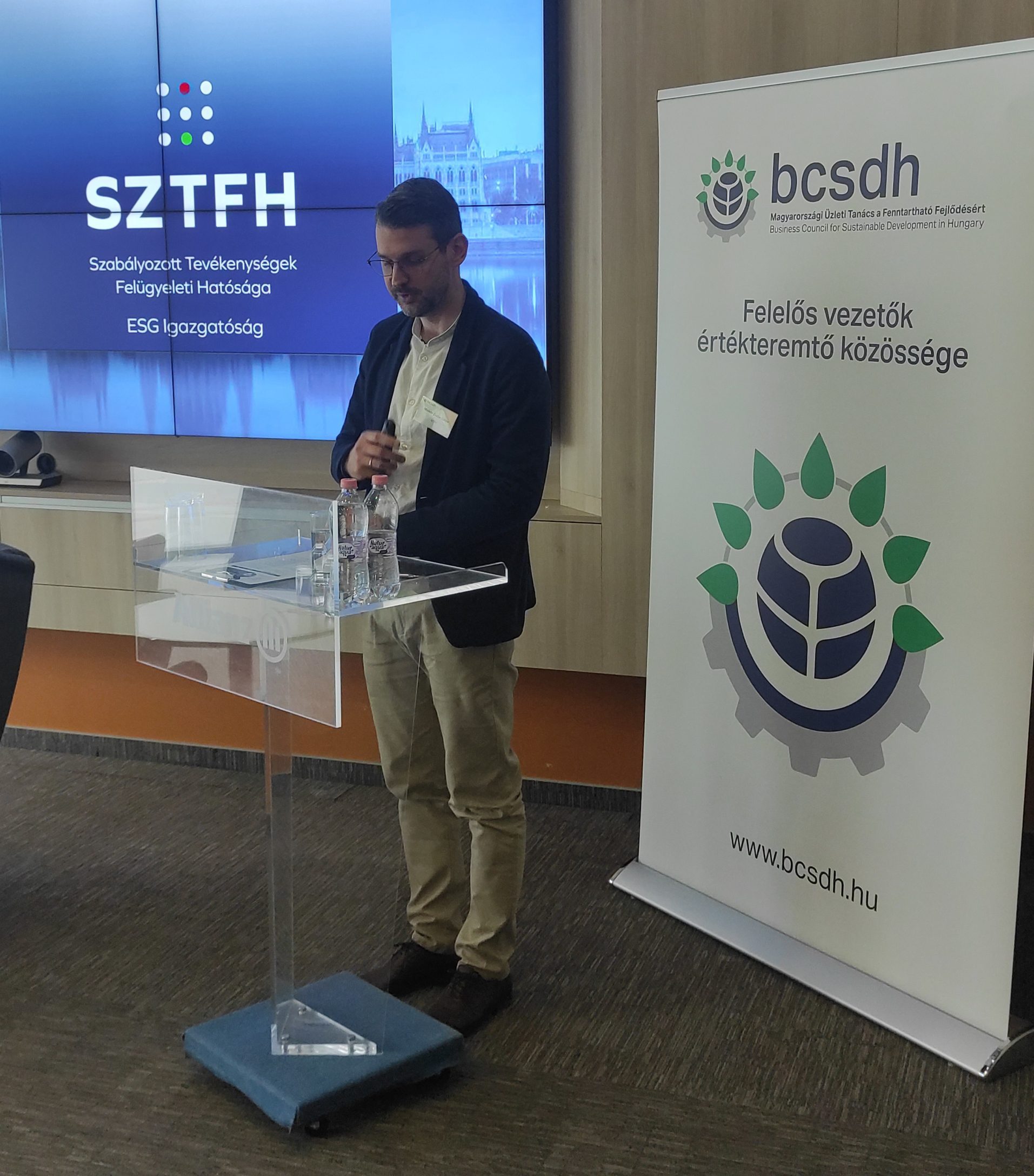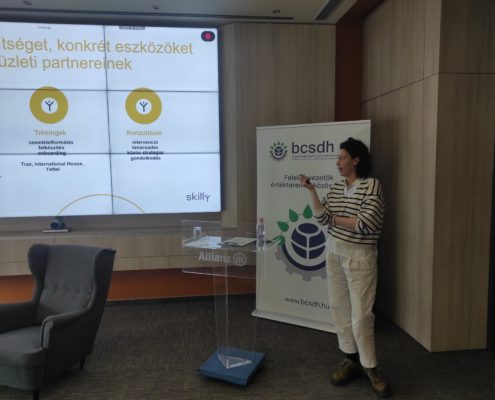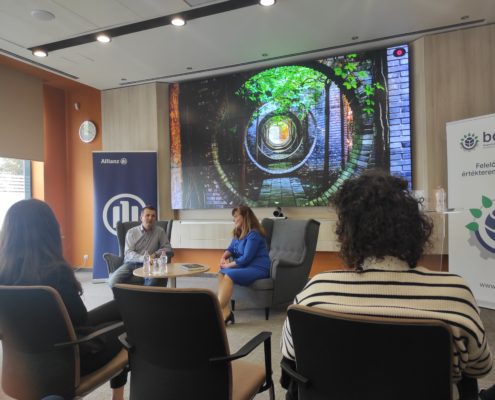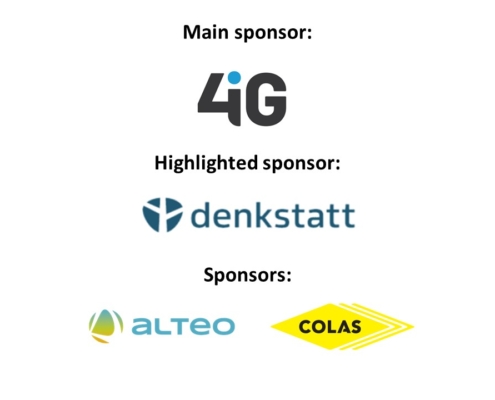Budapest, 26 November 2025: 95 percent of sustainability-committed companies in Hungary state that being able to operate sustainably is their goal, while ESG activities and reporting are tools that can help make this possible. The number of companies that feel prepared to meet their ESG obligations has increased by 42 percent, according to the latest survey conducted by the Business Council for Sustainable Development in Hungary (BCSDH) with professional support from KPMG.
According to the survey results, the motivating effect of regulatory compliance has increased significantly in recent times. In 2025, fulfilling legal requirements will already be the main driver of ESG integration, alongside growing emphasis on meeting owners’ expectations and customer and client needs.
“Despite changes in reporting regulations, most companies are not slowing down: more than half of the leading companies have expanded their ESG capacities and are continuing sustainability developments that are already underway. Over the next two years, most companies will continue to develop their ESG activities and reporting according to their planned schedules. Overall, the survey indicates that Hungarian companies are steadily developing more sustainable and transparent operations,” summarized Irén Márta, Managing Director of BCSDH, regarding companies’ future plans.
Most companies plan to expand the scope of their ESG activities over the next two years, and the majority also intend to continue their reporting processes as scheduled. Few large enterprises or SMEs are taking advantage of the opportunity to postpone, and only a minority intend to wait for regulatory decisions before determining their ESG reporting plans.
“The results show that 87 percent of the surveyed companies already feel prepared to meet the requirements of the CSRD and the ESG Act, which represents significant progress compared to 2023. Among the respondents, recognition of the business benefits of ESG has clearly increased. According to 91 percent of companies, ESG ratings provide a competitive advantage, and 87 percent believe that better ESG performance will become an even more decisive business factor by 2027. Small and medium-sized enterprises perceive these advantages even more strongly than large corporations. For respondents, employee engagement and improved management of ESG risks remain key benefits,” highlighted Ágnes Deme, Senior Manager at KPMG.
Companies now have more mature goals and active implementation programs in social and governance areas. This finding is consistent with the previous survey, which also identified these areas as highly important. In the human value domain, 55 percent are in the ‘active implementation’ phase with regard to developing working conditions, equal treatment, and employee well-being. In the environmental domain, companies typically focus on carbon emissions, energy use, and waste management. This is where future development plans are most prevalent: 31 percent of respondents already plan to set biodiversity targets, and more than 25 percent intend to develop objectives related to climate adaptation. This is unsurprising, as 70 percent of companies identify climate change as a threat, while 80 percent of respondents view climate adaptation as a profitable business activity.
In summary, companies are aware of the impact of climate change on their operations and recognize the need for systemic change. Ninety percent agree that the true challenge of the green transition and achieving sustainability goals lies not in technology but in economic viability and mindset change.
About the BCSDH ESG Survey
For the third time, BCSDH has conducted a comprehensive survey among its member companies to assess how ESG aspects are being incorporated into their daily operations and value chains, and to understand their future expectations regarding sustainability. KPMG served as the professional partner for the survey.
Data collection for the survey concluded in October 2025. The results were published on 26 November 2025.
Of the questionnaire sent to BCSDH’s 155 member companies, 77 responses were received from 15 industries, including 23 companies listed in the HVG TOP200.



